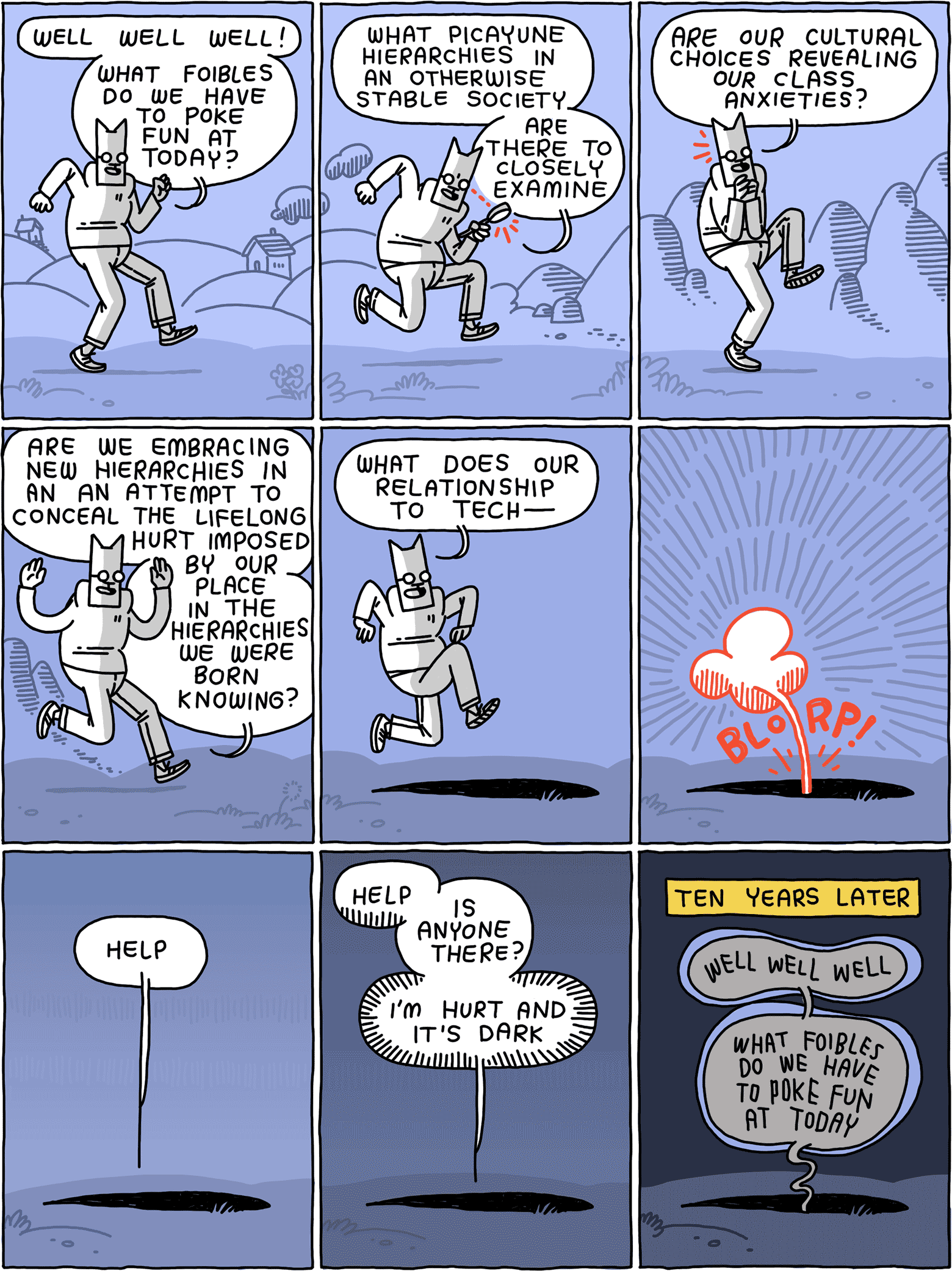
the server asked if I wanted "sparkling or still" so I asked for still but it arrived well above 0°K and your honor that's why I'm seeking $50,000 in emotional damages
This weekend, I linked to a good blog post about how to download everything that matters to you. Here are a couple tools I, personally, use which can add to that:
scdl
This is Soundcloud Music Downloader - a command line tool for downloading tracks from their Soundcloud pages. It does precisely what it claims to! If you have ever used command line yt-dlp then this will be easy for you to pick up.
Beets
Once you've ripped all your CDs, you should tag those files correctly so that you can find and enjoy them in your collection. I used Beets for this, and wrote about my experience here. It is a tool which demands a lot of slow and specific attention - you should put a lot of time into using this tool, but you'll be pleased with the results, I think. For the first time, my music collection - which I've been building since high school, since I never picked up spotify or another streaming service - is manageable, well-organized, and searchable.
Stacher
A GUI for yt-dlp! It makes it much, much easier to handle that tool. It even has a feature which allows you to subscribe to youtube channels and download everything they put out.
The itch downloader
If you are worried about losing the itch games you like, just download the app and grab em all right now. This will show you every game in your library, including ones which are delisted from search, and you can just download them and sit on them. I used to have a big folder of games from itch and elsewhere on one of my old computers so I took an hour or so and rebuilt it with the ones I like on my new computer. I think it shows the ones you spent money on, and I don't think it shows everything from every megabundle you ever got, but it's a great way to stop.
Personally, I do not believe there is a reason to freak the fuck out about itch stuff - I think the number of people who are being bizarrely harassing to itch right now is really actually very limited, and it seems like the phonecalling campaign is actually doing really well. But it still seems good to me, in this current political climate, to grab everything you like and have space for... and sit on it.
Katelyn Burns on the urgency of squashing beefs with other trans people in the face of unprecedented attacks on the community under Trump 2.0.

by Katelyn Burns
As with any online community, trans people have our beefs. Some petty, some more serious, we all clash with each other from time to time. I’d rather not name names, but I’ve had blow ups both big and small with a wide variety of “publicly known” trans people over the years, most of whom I’ve met face to face before.
It’s only natural when you end up spending years sharing online space covering the same political issue as a couple dozen others. Heck, even Evan, the founder of Assigned Media, have had our clashes before, though none have ever risen to the level of actual vitriol or blocking each other. Though I do vaguely remember unfollowing him in a petty baby rage. (Evan notes, “I was probably wrong about something.” I was probably wrong about something too, people are allowed to disagree online!)
Most people would not know about these clashes, as there was maybe a vague subtweet here or there. I tend to not publicly call out other trans people if I can help it (except for you, Brianna Wu).
But earlier this year, with the Trump regime in its ascendancy and trans people their first targets, I made a conscious choice to put aside my petty trans community squabbles. It started with a well known blogger with whom I’ve had some criticisms over the years. I DMed her one day and just let her know that I wanted to have more solidarity amongst other trans journalists and that we were all on the same side in the face of Trump 2.0.
One by one, I squashed my beefs. Eventually I reached out to a prominent trans woman who I used to be friends with in DC whom I had a falling out with over half a decade ago. She had wronged me personally once long ago, and then again a few years later, but thinking it over to myself once the feelings cleared, I didn’t treat her very kindly in the fallout either.
Seven years ago, before Covid, I was quite full of myself and feeling very righteous. That righteousness served me well when I was slaying conservative absurdities, but sometimes my friends and allies also got caught up in that energy. There will always, of course, be our common trans discourse-related disagreements: like over what level of or if trans medicalization is appropriate, the definition of transmisogyny and how it operates, or how important it is to engage with ideas about gender vs. focusing on trans people’s concrete medical needs. But that all seems less important now in the face of a conservative movement hellbent on stamping us out of society.
As trans people we will always have our differences, and disagree on the best way to move forward. Readers here will be well acquainted with the harms perpetuated by the Trump administration and other conservatives towards trans people, but it’s work recapping to illustrate the threat we are facing: the trans military ban, the deliberate targeting of blue state clinics providing gender affirming care for youth, the passport gender marker change ban. And they’re not even halfway through their Project 2025 agenda for erasing trans people from society. They’re using “pornography bans” to restrict all internet mention of trans people now.
If the other side wins, we’re all still going to be in the same camps together (yes even you, Brianna Wu).
There is no petty drama that transcends the threat we face from outside our trans community and so we simply must stick together and look out for each other.
This is a fight for survival, and there’s only going to be one winner. It’s either us or them. So let’s let go of our grievances with each other and start working together, despite our differences.
With all that being said, I’m excited to announce a collaboration between myself, my podcast Cancel Me, Daddy, and Assigned Media. From now until 9/8/2025, Assigned Media is offering 50% off memberships by following this link. And I’m offering the same. You can sign up for annual memberships to both my writing and podcast Patreons at 50% off by clicking the links below and using code ASSIGNED at check out.
Yes I have two Patreons, it’s complicated. My writing Patreon features fewer perks for paid subscribers and all of my newsletter posts are free with no paywall, but the funds go directly towards paying my bills. The Cancel Me, Daddy Patreon has tons of cool perks, including access to the show Discord server, early access to all new episodes, and access to a member exclusive live show once a month. Use code “ASSIGNED” at check out for the discount!
We’re looking forward to welcoming Assigned readers to our weird little community. :)
Katelyn Burns is a freelance journalist covering trans issues and columnist for MSNBC and Xtra. She co-hosts the Cancel Me, Daddy podcast.

After years of non-stop hype and bloviation, a flood of recent news stories suggest the tide may be turning on “AI”. Headlines this week announced AI is a “mass delusion event,” “a big nothing,” and even warned readers to “get ready for the crash.”

New research published in July and just making the rounds this week found that an extraordinary 95% of generative AI pilots at companies that rushed to implement them are bringing in zero returns, according to a new report from MIT.
But that hasn’t stopped the hypers. Sam Altman of OpenAI this week declared that although we’re in an AI “bubble” that investors are “overexcited” about, he’s still going to spend trillions on new data centers. “Smart people get overexcited about a kernel of truth,” he offered.
Looking for a fresh take?
At the Mystery Hype AI Theater 3000 podcast, we’ve been dismantling AI hype for a while now.
If you’re looking to get caught up, here are some of our best introductory episodes to help you separate “AI” fact from fiction and navigate bullshit mountain:
The ChatGPT Awakens: our take on the 2023 launch of the chatbot (spoiler alert: LLMs are “mathy-maths” and “AI” is always humans!) [Livestream, Podcast, Transcript]
AGI Funny Business (Model), with Brian Merchant: the author of Blood in the Machine: The Origins of the Rebellion Against Big Tech joined us to break down the history of the current “AI” hype wave and the business model behind it [Livestream, Podcast, Transcript]
Deflating Zoom's 'Digital Twin’: Remember when Zoom CEO Eric Yuan said in the future you’d be able to send an LLM-powered “digital twin” to work meetings instead of going yourself? We do! [Livestream, Podcast, Transcript]
The Anti-Bookclub Tackles 'Superagency': We read LinkedIn co-founder and venture capitalist Reid Hoffman's book of magical thinking, Superagency: What Could Possibly go Right with our AI Future, so you don’t have to [Livestream, Podcast, Transcript]

